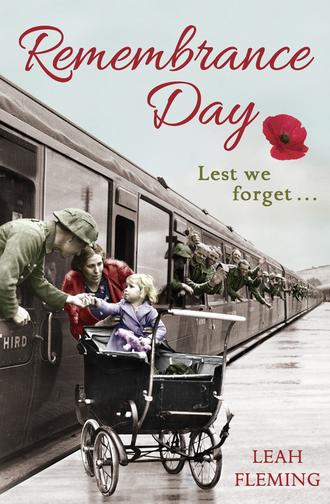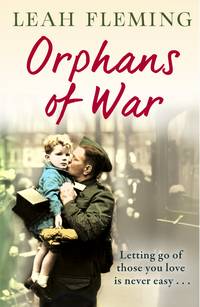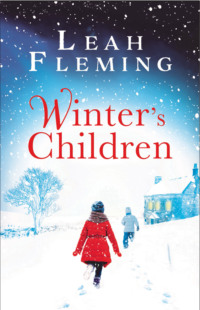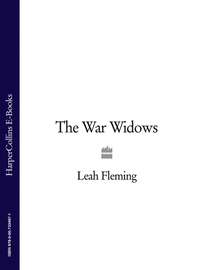
Полная версия
Remembrance Day
‘Eyes right!’ shouted the drill sergeant.
Damn! Guy nearly tripped into the back of Forbes Senior.
‘At ease, gentlemen. We will be stepping up training this term and for the foreseeable future. We want all Sharlanders to be prepared for every eventuality, to answer the call to arms, should the situation arise…’
Suddenly there was a commotion in the rear and a chorus of ‘Sir!’ Guy spun round, suddenly sensing that it would be Angus on the ground. ‘It’s Cantrell Junior, sir! He’s fitting.’
Angus was lying on the ground, spasms of jerking limbs, frothing at the mouth and a pool of wetness on his trousers. It was a frightful scene. Guy broke ranks to be at his side. ‘For God’s sake, give him some air!’ he heard himself shouting.
‘Take him to the san,’ someone yelled, but the master shoved them all aside.
‘Wait till he comes round.’ He turned to Guy. ‘How long has he had fits, Cantrell? Better put something on his tongue.’
Someone with a satchel brought out a ruler. Everyone stood around. Guy felt sick and shaky. Then the twitching tremors stopped and Angus woke up dazed, surprised to find himself the object of attention.
‘What’s up? Guy? Did I fall?’
‘You’ll be fine, old chum. You had a bit of a turn, that’s all.’ Guy wanted to cover his wet trousers with his army jacket to mask his brother’s shame. The cadets were dismissed. Angus was carried to the san and the doctor summoned from the village.
‘What’s happened to him?’ Guy asked Matron, suddenly scared at such a public exhibition.
‘He had a seizure…nothing to worry about. It probably won’t happen again. Too much drilling, I expect,’ she fobbed him off. ‘Run along now…we’ll see what Dr Mackenzie has to say. Your parents will be informed in due course. It may be nothing but overtiredness.’
‘Can I stay?’ Guy pleaded, knowing Angus would be feeling strange on his own.
‘No, the boy needs rest and privacy…And he’s never done this before, you say?’
Guy shook his head. Fits were terrifying to witness. He’d felt so helpless.
‘Ah well, growing pains and fits go hand in hand in my book,’ Matron smiled. ‘Doctor will know what’s best for him.’
Guy ambled through the leafy grounds of Sharland School, puzzled, scared and confused. What if they made Angus leave? What if it happened again on the rugby pitch in a match, or riding across the moor, or with a gun in his hand? He was an outdoorsy chap, and Sharland was a school that fostered team spirit, personal challenges, fresh air and exercise. He’d never cope.
Mother would have him home-tutored in a flash if she thought there was any danger.
Guy stared up at the turrets of the stone building. He loved his Alma Mater, with its warren of study rooms, corridors, fine chapel and acres of playing fields.
Angus wasn’t academic. He’d loathe being deskbound or cosseted. He needed open spaces, hunting over the fields to release all his spare energy. He bounded everywhere like an over excited Labrador puppy.
Guy found a hidey-hole under a huge black poplar and whipped out his forbidden pipe. Had Angus’s jump from the Foss left permanent damage. Had it ruined his chance of an army career? Would he be an invalid? Guy couldn’t bear to see him unhappy and frustrated.
Take a hold of yourself, he thought. Don’t get so windy! One fit doesn’t mean life in a basket chair. It was just a warning sign, that was all. If his brother calmed down and took enough rest and some pills, he’d be his old self again. Guy said a silent prayer to the Almighty to put everything back to normal.
Reluctantly he lifted himself out of his funk hole and made for the school. He’d face a barrage of questions from his house chums on his return. It was none of their business but news would have already gone round the school like wild fire. Cantrell Junior had had a fit. The question was, would he have another?
3
Selma stared into the window of Bow’s Emporium on Market Square in Sowerthwaite. The window was lit up like a magic lantern with fairy figures in silhouette against a glowing sky. She couldn’t wait for Christmas to come and the first carollers to sing at the door for a slice of spiced loaf and hot elderberry cordial. It was cold and her breath was steaming up the window. Mam was doing her secret shopping on market day but it was already darkening fast and the sky was full of snow feathers. Selma’s feet were freezing on the stone pavement.
She wandered past the toy shop, glad she was grown up enough now not to be disappointed by the lack of the Christmas dolls and games her other friends bragged about. This year there might be a new knitted cardigan with matching beret and scarf, a parcel of clothes from Aunty Ruth when she called in on Boxing Day, some of which might fit her, if she was lucky.
Selma’d grown inches since the summer, and filled out. Her breasts were like two rubber balls sticking out of her thick vest, and with them came the curse one morning and all that messy business that Mam explained was a step on the way to being a proper young lady. But fourteen was not quite old enough to roll her hair over in pads like Marigold Plimmer did, the other pupil teacher and the bane of Selma’s life.
Marigold was older by a year, pretty enough, clever too, but had a way of setting Selma’s teeth on edge. The Plimmers ran the Hart’s Head Inn on Elm Tree Square at the other end of Prospect Row, but not far enough from the teetotal Bartley forge for comfort on a noisy Saturday night. The pub had once been a house, with two fine bow windows and a large stable for horses at the back with benches for draymen to idle away their lunch times.
Marigold and her mother, Betty, were also on the horse-drawn bus to Sowerthwaite alongside the Bartleys, boasting about how big a turkey they were going to carve and how Marie was getting a new tartan dress with a crocheted collar for the Sunday school Christmas concert.
It was Marie who had pointed out that Selma and her brothers were heathens, since none of them had been baptised, and they would all go to Hell. Selma knew the Chapel didn’t do infant christenings but preferred them to make a profession of faith when they were teenagers, but it had still worried her for days afterwards.
‘What happens to my baby brothers and sisters who died before baptism?’ she had cried to Mam in distress one night. ‘Will they be saved?’
‘Of course. The Lord only lent them to us for a season. They are angels now in Glory, too lovely to live long in this wicked world. Take no notice of Marie Plimmer’s popish superstitions,’ Essie had reassured her, but Marie had a way of insinuating that chapelgoers were the poor relations in this village.
The mill owner, Mr Best, was a big worker and Sunday school teacher, as was their organist and schoolmaster, Mr Firth. They had a great concert party and outings to the seaside at Morecambe, fun and games at Christmas like everyone else.
Dad said that Christmas was the Lord’s birthday, not theirs, and the heart of Christmas was in giving to others, not wanting for yourself. But on this chill December afternoon, the forthcoming Christmas festivities glowed like a beacon on a dark night with all the special baking, the scent of spices, roasting meat and the promise of fun and games.
Farmer Dinsdale up the dale had promised them a joint of pork as a thank you for Dad’s good services to his Clydesdale horses over the year.
Selma knew all about pig sticking and slaughter at this time of year. The poor beasts were cornered and hung upside down with their throats cut to bleed into a bucket for black puddings. But she did love a roast with crunchy crackling and Mam’s special herb stuffing. Her mouth was watering at the very thought, making her forget the chill of the wild north-easterly as it tore through her thin coat and scarf: a lazy wind, they called this, one as went through you not round you. It was time to make for the bus home.
Then she caught sight of a tall young man striding across the square, parcels under his arm and another identical figure chasing after him. They looked so smart in thick tweed suits with Sharland School scarves flapping behind them, those distinctive purple and gold stripes that marked the public school boys out from other town scholars. Who could miss the Cantrell twins doing their own Christmas shopping?
Selma tried not to stare and pulled her muffler over her face to spare her blushes but not before she caught the eye of the first twin.
‘Hello there, Miss Bartley…Busy with your Christmas shopping too,’ he said. ‘And you’ll have a lot of folk to buy for.’
His brother marched on,hardly giving her a glance.‘Hang on, Angus! Let me introduce you to the young lady who helped save your life!’
Angus stared at her, his eyes blank and dull as if he had never seen her before. He nodded but said nothing. ‘He doesn’t remember a thing, sadly,’ Guy explained. ‘How are you? Looking forward to Christmas?’
Selma smiled back, not knowing what to say.
‘It’s jolly cold. There’s snow on the way but I hope it holds off for the Boxing Day meet.’
Selma nodded, knowing her father had been hard at the forge shoeing fine hunters for the annual foxhunting gathering that started outside the Hart’s Head.
‘Spare a thought for us on our Christmas morning parade,’ she offered. ‘I don’t fancy singing through a blizzard.’
‘Parade?’ Angus looked puzzled, fidgeting with the string on his parcel and looking at her sideways through drooping eyelids.
‘The Christmas waits. We sing carols under the tree in the early hours and then we have a band…’
‘Oh, the chapel thingy.’ Angus shrugged. ‘Spoiling everyone’s lie in, Mama says.’
‘Angus!’ It was Guy’s turn to be embarrassed. ‘Oh, look, there’s Beaven with his new toy. Father has bought a motor car. We’d offer you a lift only we’re off to the station to meet the London Express. Father is home for the hols too.’
‘I’m waiting for my mother. We’re catching the bus, thank you. I hope you both have a pleasant Christmas,’ she offered, bobbing a short curtsy.
‘And the same to you and yours. You know we are awfully grateful to you and your brothers, aren’t we, Angus?’ He turned to his brother, but Angus had already strolled off towards the big saloon. ‘Forgive his rudeness. He’s not been quite himself lately. I’d better be off. And you must go too. You look frozen.’
To Selma, Angus looked just as haughty as he had on that fateful afternoon when he was showing off. ‘I hope he recovers soon,’ she replied, more out of politeness than conviction.
Guy paused. ‘Will you be watching the meet?’
‘I might if the weather holds but we’re expecting company from Bradford: my aunty Ruth and her husband.’
‘And so are we, loads every day, Mother’s friends mostly. It’ll be charades, singsongs and cards, long walks and cross-country hacks; exhausting!’
‘We have singsongs too but no card playing…we don’t hold with gambling,’ she answered, not telling him that they never imbibed alcohol either. ‘Have fun then.’
‘Merry Christmas, Selima,’ Guy replied, raising his cap as he marched off.
She felt a glow of pride that he’d remembered her proper name. Guy was as warm as his brother was cool, sick or not. It was as if he saw her as a friend, an equal. Confusion and excitement fluttered in her chest as if butterflies were let loose from a cage.
Their families lived in separate worlds even within a small village, sectioned off by a high stone wall and beech hedge, but Christmas was a special time, she smiled, a time of goodwill to all men, rich or poor, high or low. Was it possible that their two worlds might meet again? One thing was certain: she wanted to see Guy on horseback in his hunting dress.
Suddenly her reverie was halted by a sharp dig in the back from a passer-by.
‘What were you hobnobbing with those two toffs about?’
Selma spun round to see the pinched face of Marigold Plimmer pursing her lips into a sneer. ‘Never you mind!’ Selma whispered back.
‘Be like that but don’t think you’ll get any favours from that quarter. My mum says one of them’s gone daft in the head. Had a fit in the school yard, or so Tilly Foster said. She works in the canteen and saw it all—well, one of her mates did. Just shows money can’t buy you everything. It’s only fair they should have some bad luck as well as us, isn’t it?’
‘That’s sad,’ murmured Selma. No wonder Angus looked so blank. ‘His mother must be so worried.’
‘Who, that stuck-up cow? Lady Muck of Waterloo? Serves her right. You should see her in church. Comes in through a side door just before the service, all dolled up with a thick veil like curtains round her head so she don’t have to look at us. Then leaves the same way as soon as the organ strikes up at the end. I pity them boys. She’ll not let them far off the leash. My mum got it off her that works in the kitchen that she—’
‘Oh, there’s Mam. I’ve got to go. See you on the bus!’
Selma couldn’t wait to get away from Marie’s gossiping. She didn’t care for all that backbiting. Poor Guy and his brother—no wonder he looked tired and glassy-eyed. Her little brother, Dawson, had fitted badly when his temperature went sky high and never came down, all those years ago. They’d tried to soak him with ice water from the slate tank in the yard and then piled on blankets to sweat it out of him but his heart was too weak, the doctor had said. Why did Marigold have to remind her of such sad memories?
Selma stood looking up to the grey-white hills rising above the town, sparkling with ice, and the trees dusted with air frost. How beautiful it looked at dusk. In two days it would be Christmas morning and they would be singing ‘Joy to the World’ around the village green. So no more sad thoughts when there was so much to look forward to. Mam was waving at her now to get in the queue. Time to go home.
On Christmas morning the wind would carry the sound of bells into every household, thought Essie, waking at dawn with excitement long before the peals filled the air with promise. This was the day for singing and feasting. However humble they were, each family managed some cheer at their fireside and kept good company together.
Essie had packed each stocking with love: a shilling, an orange, a bar of chocolate and some walnuts to crack, knitted socks for the boys, and a new scarf and beret for Selma, with some sweet-smelling lavender sachets for her pocket. How she wished she could do more than just these little tokens, but they were going to have a fine feast with all the trimmings later; plum pudding and a traditional dish of frumenty, fresh creamed wheat in a bowl and mince pies to share with visitors.
Tomorrow Ruth would bring treats from Bradford. She had been in service and married a wool sorter’s apprentice who had done well in the trade and set them up comfortably. Sadly there were no little ones so Essie’s own children were at the receiving end of much kindness. Not that they were short of anything this year.
Only two days ago she had laid out old Mrs Marshall, who had died in her sleep, well prepared with her best nightdress and pennies ready in the top drawer.
There was an art to laying out the dead with dignity and pride, plugging places that might leak, washing and dressing the body, tying the chin with a bandage, combing hair and changing all their linen for the first viewings.
Mrs Marshall was a good sort, plain spoken but kindly, and would be missed at the weekly Women’s Bright Hour. Her son and widower were pleased and had left Essie two florins on the dresser for her willing services, a thank you that had come in useful in buying little extras for the coming days.
It was not that Asa made a poor living, but with the rent and their everyday expenses, the budget was always tight. Growing boys needed good boots and strong breeches and shirts. She was trying to save for Selma to have some fresh skirts and blouses for her new post as a pupil teacher assistant, and it was time she wore a good corset to hold her firm. They were blessed with work and not want.
As she crept down the dark stairs with a lamp she smiled at all the little trimmings Selma had dotted about the cottage, evergreen branches, winter berries, a kissing bough of holly hung from the kitchen. They didn’t go in for decorated trees because Asa said they were pagan and killing perfectly good shelter for winter birds wasn’t on, but he did light one candle at the window on Christmas Eve as a symbol of guidance to those who lived in dark ignorance.
Asa was a good husband and one who didn’t put his religion away with his Sunday suit like so many she could mention. He was strict and fair and honest to the point of being a stickler. Only last week he had refused thirty shillings for a piece of wrought iron work that had taken him hours of reshaping and finishing. ‘Give me twenty-nine shillings, Alf,’ he’d said. ‘Never let it be said that I sold this for thirty pieces of silver. The Lord was betrayed for just that sum.’ How could you not love such a man?
Now the front parlour smelled of elbow grease and beeswax polish, the pine needles added a rich tincture and the fire was laid and ready. They had roasted the joint overnight slowly, wrapped in greaseproof and cloth so it would fall apart and go further cold for Ruth’s visit.
Every surface was cleaned and tidied, the best rag rug down and white linen cloth ready to receive the feast. Their boots were lined up for the Christmas procession they called the waits. Even she was not too old to feel a thrill on such a joyful morning.
Soon the children were stumbling bleary-eyed into the dawn light.
‘Rise and shine! We shall stir the hearts of West Sharland with our songs of praise this merry morning.’ Asa was wide awake, chivvying up his sons to wash and shave while Essie shoved hot porridge from the stove into bowls for them all. No one was going out on an empty stomach in this chill.
‘Do we have to?’ moaned Newt, who liked his lie abed.
‘Faith before feasting, son! How can we honour the day without honouring Him first?’ There was no arguing with Asa when it came to what was right and proper.
By the time they picked their way across the cobbled square there was a small crowd huffing and puffing, stamping their clogs; the faithful brigade of chapel stalwarts wrapped against the cold with caps, shawls and bonnets on their heads. Men in hobnail boots and hats holding baskets of hymn sheets, children, muffled with hoods, skating on icy flags.
The last to arrive was Mr Best from the mill, in his carriage with his son and daughter and a line of servants walking behind, looking pinched underneath their best cloaks. Harold Fothergill flourished his trumpet and the sober remnants of the village silver band gathered in a huddle. The drummer strapped on his instrument ready to lead the proceedings. They were ready for the off but not before a prayer.
‘All present and correct,’ shouted the pastor, raising his hat. Only the old and infirm were exempt from this morning’s witness.
‘Hurry up, I’m freezing!’ yelled Frank, laughing. ‘What’s the first hymn?’
‘As it always is,’ Newt replied. ‘“Christians, awake” followed by “Hail, smiling morn”.’
‘That’ll wake the dead then,’ quipped Selma.
‘If we’re awake and doing, I don’t see why those still in their beds should slumber on,’ said the choirmaster. ‘I want full throttle.’
There was a drum roll, a tuning up of the large euphonium and the procession stood to attention as the bass drum banged out the start of their parade. Everyone tried to stay in tune and on time but they kept parting company and stopping so stragglers could catch up as they stormed round the village green, past the church and through the side streets before back to the square.
‘Christians, awake, salute the happy morn…’ rang out in the frosty air loud enough to wake the dead in the churchyard; ‘O come, all ye faithful’ and ‘Once in royal David’s city’. A few curtains twitched and then a head appeared from behind the shutters of the Hart’s Head. An irate Charlie Plimmer was yelling his protest as he chucked the contents of his chamber pot out the window in their direction.
‘Shut that bloody racket! Can’t a man get a decent night’s sleep without you caterwauling?’
‘And a Merry Christmas to you and yours, Mr Plimmer…’ The minister raised his hat and everyone cheered.
Essie smiled as they carried on singing until they were hoarse, standing under the elm tree that shaded both teetotallers and hard drinkers alike of a sunny evening. ‘Who needs John Barleycorn to lift spirits on such a day?’ whispered Asa, slipping his arm into hers. Essie smiled and patted his hand, her dark eyes flashing mischief.
‘That was a good sing-along. We got in first before the church bells,’said the minister.‘Time for a slice of Christmas pie in the chapel room.’
Essie stood admiring the grey stone building, proud to see her family name, Ackroyd, carved into one of the foundation stones. We’re built to last, she thought, looking at her bonny children growing into fine specimens. One day they would be leading the faithful in this age-old tradition.
The pastor handed small books to the children, full of terrible tales of poor little Eva who waited in the snow for her father to come out of the public house, dying with fever and bringing him to sign the pledge of her dying wish, alongside decorated biscuits. They sipped cups of tea with relish; glad of the warmth on their fingers.
Essie smiled, thinking she had brewed up her Christmas cordial from hedge berries; blackberries and elderberries, rosehips all steeped in sugar for weeks on end; all the goodness of God’s earth in a stone jar. Asa, Ruth and her husband, Sam, would wolf it down and complain of a puzzling funny headache in the morning. Essie was sure it must be the extra sweetness of the juice, but what if the fermentation was too strong? Perhaps it was better not to know. She was sure the Lord, who turned water into wine at the wedding in Cana, would not begrudge a little laxity on His birthday.
‘You don’t really believe there’ll be war, do you, Charles?’ Hester asked her husband, pressing her damask linen napkin to her lips, her grey eyes full of concern.
‘Of course there will,’ Colonel Cantrell snapped. ‘Why do you think I’m setting up a Rifle Association in our bottom field for the local men to sharpen up their musketry and drills? Got to get ’em up to scratch, and the Territorials too. It’s been coming for years. The Kaiser and his henchmen do nothing but boast about their navy. One of these days he’ll want to pit it against us British, Lord Kitchener was reminding us only the other day,’ he replied, wiping his waxed moustache.
‘But what about the twins?’ she countered. Her sons were now past their sixteenth birthday.
‘Just the sort of trustworthy leaders of men the army will want. Officer cadet training is first class for stiffening the backbone.’
‘But you heard what those doctors said about Angus. He’s had two fits in the past few months. That blessed jump from the Foss is to blame, I’m sure.’
‘He looks A1 to me; nothing a bit of drilling won’t cure. Guy keeps an eye on him. They’ll both make excellent officers.’
‘But they’re hardly out of short trousers.’
‘Don’t fuss, woman. Boys grow up fast these days, and when the time comes they’ll want to do their duty for King and Country.’
‘Not at sixteen, they won’t…You mustn’t let them do anything stupid, Charles,’ she pleaded, stabbing the air with her cake fork.
‘Huh! If every woman took your attitude, why bother with an army? We could just invite Kaiser Bill over the Channel to occupy us. Pass the cheeseboard and stop wittering.You’ll make a baby of Angus with all those hospital appointments and rest cures.’
‘Now who’s being unrealistic? Who’ll have rest cures if there’s a war on? I think he should be tutored privately for the meantime, away from all that activity they go in for at Sharland School.’
‘And I think you should go back to your tapestry and get things in proportion. I don’t want my son raised as a spineless sissy. He’s been bred to be tough and a skilled marksman.’ Charles rose, grabbing the port decanter and heading for his library without a backward glance. Hester sighed and rang the bell for Shorrocks to clear away the debris of their supper.






